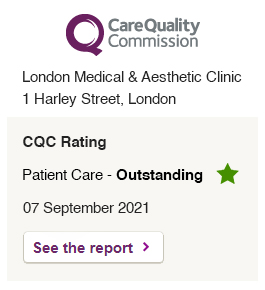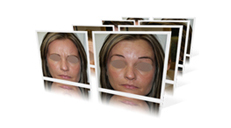Too much muscle contraction can happen after a stroke or a brain or spinal cord injury. Similar cases of excessive muscle spasms can also be the result of cerebral palsy or genetic diseases of nerves.
These conditions cause significant physical limitations, as well as, profound pain. Any muscle can be affected by spasms, regardless of muscle size or location. This includes the muscles of the voicebox and the eyes.
Dr Ayham Al-Ayoubi : “Anti-Wrinkle Injections has helped millions of patients Worldwide with conditions caused by overactive muscles”.
Anti-Wrinkle Injections is a formulation of Anti-Wrinkle Injections. It is derived from the bacterium clostridium botulinum. This bacterium produces a protein that blocks the release of acetylcholine and relaxes muscles. Type A is just one of seven different types of Anti-Wrinkle Injections (A, B, C1, D, E, F, G) and each has different properties and actions. No two of these Anti-Wrinkle Injections are alike.
Despite the popular perception of Anti-Wrinkle Injections, as a form of medical cosmetic treatment, there are many practical applications for this medicine.
These include reducing pain, keeping children with cerebral palsy walking and allowing stroke patients to use their hands. While cosmetics help many people feel better about themselves, the benefits of reduced muscle spasms may allow patients to live fuller lives.
Facial Spasms
Chronic muscle contractions can occur in just one part of the body or in multiple muscle groups. Anti-Wrinkle Injections is injected only in the spastic muscle, it can be very effective in relieving dystonia patients’ localized symptoms.
Frequent involuntary contractions of the facial muscles characterize a disorder known as hemifacial spasm. This disorder typically affects the muscles on one side of the face. Anti-Wrinkle Injections for these types of muscle spasms are, on average, 95 percent successful in providing relief.
Anti-Wrinkle Injections blocks the nerve from releasing acetylcholine. As a result, the muscle spasms stop or are greatly reduced, providing relief from symptoms.
Eye Disorders
Anti-Wrinkle Injections treatment is indicated for some eye disorders, specifically strabismus and blepharospasm. Symptoms of these conditions include, poorly coordinated eye movements and eyelid tremor.
Blepharospasm is a term describing any abnormal, involuntary muscle contraction of the muscles controlling the eyelids. Typically, blepharospasm affects both eyelids and can escalate to functional blindness if left untreated.
Since blepharospasm concerns the contraction of muscles around the eyes, Anti-Wrinkle Injections functions to impede nerve impulses that control the contraction, weakening and relaxing the muscle as a result.
Neck Spasms
Anti-Wrinkle Injections for neck spasms (or cervical dystonia) are highly successful in relieving pain and returning normal neck movement and range.
Cervical dystonia is characterized my abnormal, sustained posturing of the head and neck caused by involuntary contraction of the muscles. The cause of cervical dystonia is unknown, but the condition can be aggravated by walking or during periods of stress.
Anti-Wrinkle Injections blocks neuromuscular transmission (electrical conduction from nerve to muscle) through a three-step process. This is believed to be followed by the sprouting of new axon (nerve) terminals, which results in the re-establishment of neuromuscular transmission.
Voicebox
Anti-Wrinkle Injections treatment is indicated for several voicebox disorders, especifically spasmodic dysphonia. Symptoms of this condition include speech difficulty.
Diseases of muscle spasms are surprisingly common and can be tremendously painful and debilitating. Relaxation of the muscles in spasms can be performed mechanically, chemically or surgically.
Anti-Wrinkle Injections is one of these treatments, however, before chemical or surgical interventions are used, physical therapy is often employed to see if the muscles can be stretched into relaxation.
Safety
The Food and Drug Administration (FDA) has approved Anti-Wrinkle Injections to treat the following medical conditions:
- Severe muscle spasms of the neck (cervical dystonia)
- Lazy eye (strabismus)
- Twitching of the eyelids (blepharospasm)
- Muscle stiffness in elbow, wrist and finger muscles
- Excessive underarm sweating (hyperhidrosis)
- Chronic migraine
There are very few side effects to the Anti-Wrinkle Injections procedure. While allergy to any medicine is possible, it is rare indeed with Anti-Wrinkle Injections.
Safety of Anti-Wrinkle Injections is clear, however, some patients may experience side effects.
The most common side effect of Anti-Wrinkle Injections is temporary, slight bruising, which can sometimes occur, however, this can usually be covered with make-up.
Headaches, which resolve in twenty four to fourty eight hours, can occur, but these are rare.
Anti-Wrinkle Injections is produced in controlled laboratory conditions and given in extremely small therapeutic doses. It has helped over one million patients worldwide with conditions caused by overactive muscles.















































